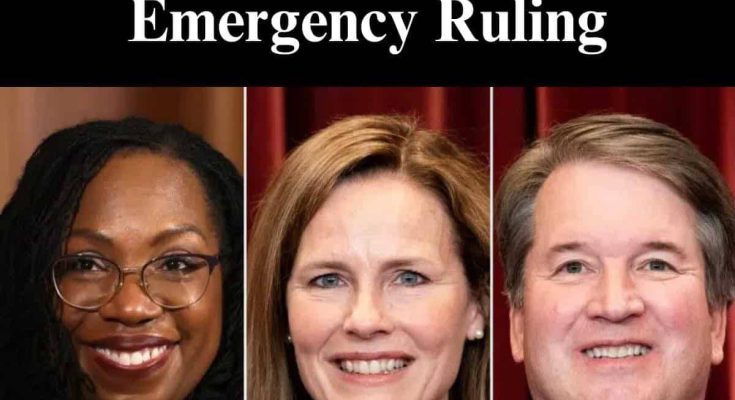The United States Supreme Court upheld the constitutionality of a federal statute that prohibits individuals under domestic violence restraining orders from possessing firearms, marking a pivotal ruling regarding gun rights and public safety.
Justice Clarence Thomas was the sole dissenter in the justices’ 8-1 ruling supporting the law. This decision reinforces Section 922(g)(8) of federal law, which bars firearm possession by anyone deemed a credible threat to another’s physical safety by a court.
In his majority opinion, Chief Justice John Roberts emphasized that this ruling aligns with the nation’s historical practice of restricting firearm access for individuals deemed dangerous. He stated, ‘Our Nation’s firearm laws have included provisions that prevent individuals who pose a physical threat to others from misusing firearms since our founding.’
Roberts asserted that Section 922(g)(8) is consistent with this tradition as it applies to the current case. He also noted that the Second Amendment should not be interpreted in a rigid or outdated manner to clarify any misconceptions stemming from the court’s earlier ruling in New York State Rifle & Pistol Association v.
‘Certain courts have misinterpreted the approach of our recent Second Amendment cases,’ he remarked, indicating that the intent of these precedents was not to suggest that the law is frozen in time; otherwise, only ‘muskets and sabers’ would be protected under the Second Amendment.
He further stated that modern regulations addressing public safety issues similar to those at the nation’s founding can be deemed lawful. This ruling comes at a time of increased scrutiny regarding the extent of Second Amendment rights, particularly concerning public safety considerations.
Following the dismissal of his defamation lawsuit against the Associated Press by Nevada’s highest court, casino magnate and political contributor Steve Wynn has requested the court to reconsider the established standard.
Wynn has refuted allegations of sexual misconduct from the 1970s that were reported by the AP. The Supreme Court has consistently declined to review cases challenging the Sullivan standard in recent years, despite some conservative justices advocating for a reassessment.
This indicates a potential lack of sufficient support among the justices to overturn the existing precedent. Speculation regarding the retirement of justices has circulated amid a flurry of significant rulings, although insiders have downplayed these rumors.
Reports indicate that 74-year-old Justice Samuel Alito has no intention of stepping down. A source informed The Wall Street Journal, ‘This is a man who has never viewed this position through a political lens, contrary to popular belief.’ ‘It is not in his character to retire for political motivations.’
Similarly, liberal Justice Sonia Sotomayor, the third-oldest member of the nine-justice panel and a type 1 diabetes patient, has also been the focus of retirement speculation. However, sources speaking to The Wall Street Journal and the BBC assert that she is in good health and committed to remaining on the court.
One source remarked, ‘This is not the time to lose her vital perspective.’ ‘She takes exceptional care of herself.’ Her presence is more crucial than ever for the court.


